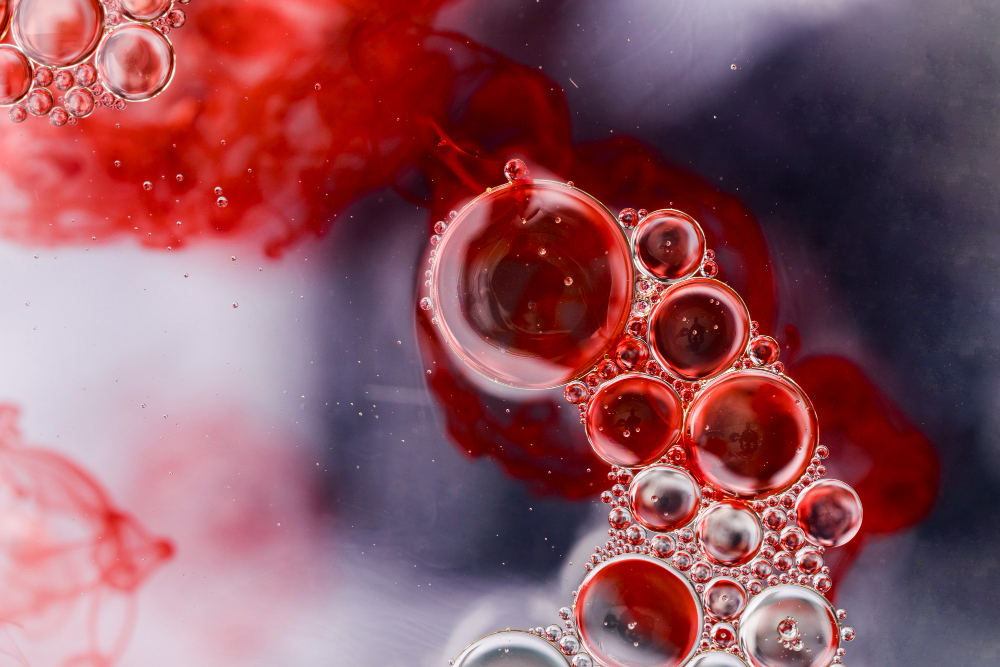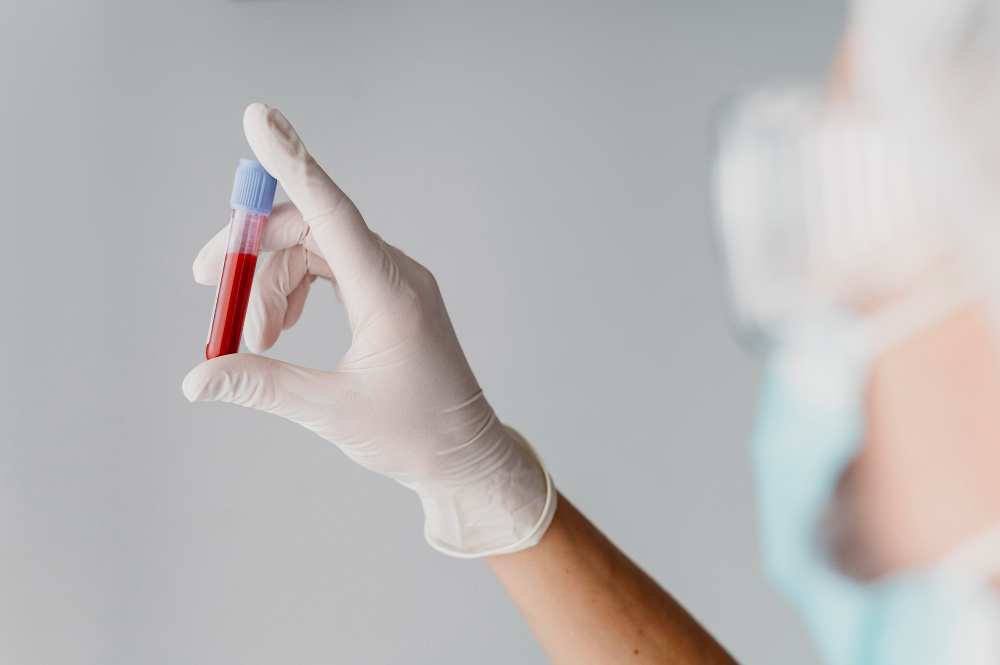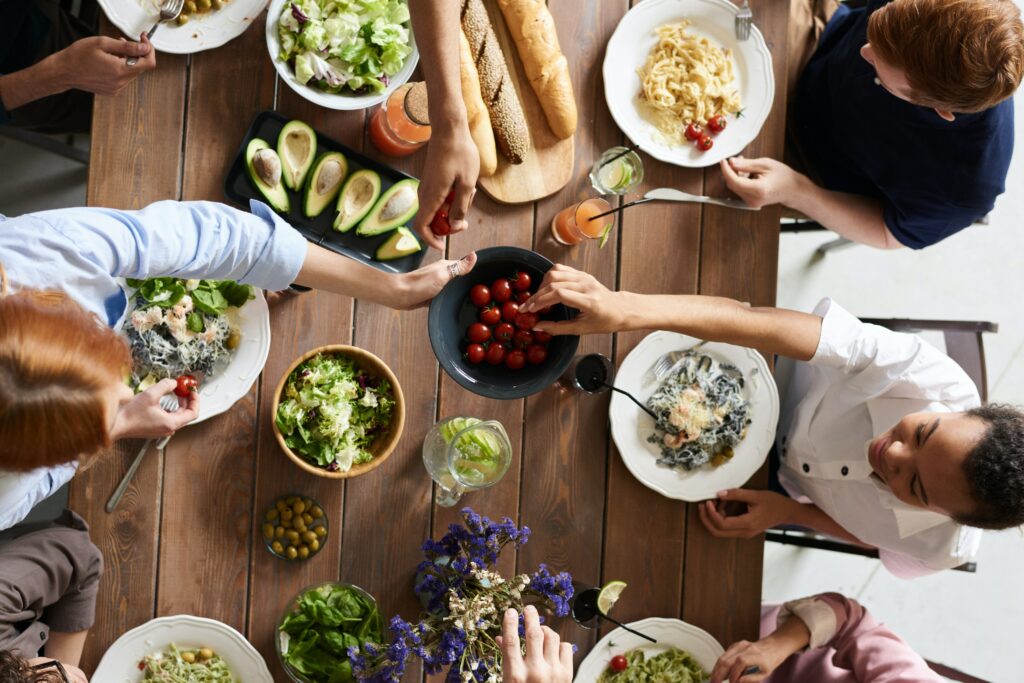

Blood purification offers numerous advantages due to its critical role in the human body.
The significance of blood is well-understood, and maintaining its freedom from toxins is absolutely critical for ensuring good health.
The presence of toxins in the blood can increase susceptibility to diseases, which is why Ayurveda views the purification process as essential for optimizing the body’s functioning. Ayurveda identifies three major components of the human body known as doshas Vata, Pitta, and Kapha.
These Doshas can be employed as indicators to assess the presence of toxins in the blood based on its characteristics. The Ayurvedic criteria based on Doshas are as follows:
1. Vata: an imbalance in this Dosha results in thin, non-viscous blood that tends to form a frothy substance.
2. Pitta: an imbalance in Pitta leads to darker blood, often with delayed clotting.
3. Kapha: a Kapha imbalance causes the blood to become pale, thick, and sticky.
Blood is a vital bodily fluid responsible for supplying oxygen and essential nutrients to the body’s cells while simultaneously carrying away metabolic waste products. It plays a fundamental role in sustaining life itself.
The primary organs responsible for producing Rakta Dhatu are the liver and spleen. The chief purpose of Rakta Dhatu is to provide essential support to the body and ensure the continuation of life.
Ayurveda supports this process as it believes it significantly enhances immunity and overall health. The removal of toxins is also known to be an effective way to prevent many diseases and reduce the risk of illnesses.
How to know if your blood is pure?
If the qualities of your blood are high you will have:
- A glowing skin and attractive complexion
- Your sense organs work well
- You have an optimal digestive power
- A healthy and happy outlook on life
- Your body tissues receive good nourishment
- You are energetic and active
If you have blood disorders
You can develop:
- herpes
- abscess
- skin disorders like acne, pimples, psoriasis, etc
- gout
- hemorrhagic disorders
- tumours
- jaundice
- pigmentation of skin
- indigestion
- syncope
- redness of eyes, skin and urine
- Feeling cold
- Reduced volume of urine and sweat
- Skin loses its lustre; becomes pale, dry, rough, and cracked
- Coldness causes the body to hold on to heat, leading to constipation
- Craving for hot, spicy, sour, citrus, and iron-rich foods
- Collapsing veins
- Becoming mentally dull, having difficulty processing and understanding new information, confusion and misunderstanding.
What are the causes of blood disorders?


The quality of foods that you eat
It is very important to prioritize the food’s quality to maintain a pure blood because it can leads to various deficiencies like iron or vitamin B12.
Try to choose food that are organic and grow in normal conditions not industrial one. Industrial and processed food are not providing the nutrients that your body needs to function optimally. Most of that food contains, chemical, artificial flavour, additives, preservatives…And your body accumulates those toxins leadind to disorders and by the time diseases.
Also, avoid excess of sugar or salt, consuming heating oils and fried foods or toxins such as alcohol, nicotine, drugs & chemicals, pesticides, artificial colors, and preservatives.
Combinations of certain foods are also harmful for the guts, for example fruits and milk, milk and meat…
Any excess of food like cheese, curds, milk sour and fermented food can also lead to a bad blood condition.
Take care of your body
Avoid all excessive exposure to the sun, to the radiation or working in a hot environnement. To maintain a good homeostasis and physical conditions, do exercices.
Keep moving your body every day. Exercise regularly and keep looking for opportunities to do physical activity of any sort.
How Ayurveda treat blood disorders?
Ayurveda use different kind of strategies to detoxify blood:
Purgation therapy called virechana
Medicated purgation therapy effectively purges pitta and eliminates accumulated toxins from the bloodstream, primarily stored in the liver and gallbladder. This therapy thoroughly cleanses the entire digestive system.
Therapeutic fasting or langhana
Fasting results in a sensation of bodily lightness, offering a reprieve for the digestive system and a chance for the body to undergo a detoxification process.
Bloodletting therapy,
Known as raktamokshana, aids in organ detoxification, enhances immune function, and improves blood circulation. It facilitates the elimination of toxins from the body.
Historically, bloodletting involved the use of leeches; however, in contemporary times, the same benefits can be achieved through regular blood donation.
Which Ayurvedic herbs are effective for blood purification?
Herbs with the combination of bitter, astringent, and pungent tastes (tikta-kashaya-katu rasa) have properties that are advantageous for blood purification. These herbs typically exhibit characteristics of being light, fine, and liquid in nature. They tend to have a balanced temperature, not excessively cold or hot. Some of the potent herbs falling into this category include:
- Neem (Azadiracta indica)
- Manjistha (Rubia Cordifolia)
- Saffron (Crocus Sativus)
- Turmeric (Curcuma Longa)
- Guduchi (Tinospora Cordifolia)
- Amla (Emblica Officinalis)
What about your emotions?
Emotions and memories are transported by the bloodstream.
Anger can elevate the temperature of your blood, while depression has a cooling effect. Since blood carries hormones and genetic information, it can be passed on to future generations. The term “blood relationships” also signifies emotional bonds and connections.
Solution for blood purification


Care your lifestyle to balance rakta dhatu
- Reduce spicy foods.
- Drink water all day long,
- Eat more fruits and vegetables.
- Don’t skip meals and maintain regular timings for eating.
- Drink 1/4 cup of fresh aloe vera juice daily.
- Avoid daytime sleep and go to bed before 10 pm.
- Reduce your anger, what is creating this anger, try to transcend this harmful emotion for the body.
- Relax and meditate regularly.
Also, effective blood circulation is crucial for the efficient conveyance of nutrients and energy throughout the entire body. Disorders affecting blood circulation can lead to various health issues, and in severe instances, may even result in organ failure.
Tips for good circulation
Handle stress by incorporating relaxation techniques into your routine. Pause, take deep, calming breaths, and explore relaxation activities that promote well-being. Consider receiving regular massages.
Maintain good posture by standing upright, ensuring your spine is correctly aligned to facilitate proper blood circulation.
Consume a well-balanced diet and seek out natural sources of vitamins K, C, and E. Include foods like oranges, sunflower seeds, garlic, ginger, and turmeric in your diet.
How to cleanse your gut?
You can fast for a week or more with kitchari.
- 1/2 cup split mung beans
- 1 cup basmati rice
Thoroughly wash both ingredients. Then, melt some ghee and combine it with spices such as fresh ginger, turmeric, ground fennel, cumin, and coriander. Next, add the rice and beans along with 6 cups of water, and bring the mixture to a boil. Reduce the heat to a simmer for approximately 45 minutes or until the mung beans become very soft. Alternatively, you can prepare this in a crockpot and let it cook overnight. Once it’s done cooking, season with salt to your taste. If you live at a high altitude, cook the mung beans for 45 minutes while you soak the rice, then add the rice and cook for an additional 45 minutes.
Another excellent recipe for daily use during a rakta shodhan or liver cleanse.
This recipe aims to detoxify the liver, eliminating excess pitta, and nourishing vata. To cater to pitta, opt for chioggia or golden beets instead of the usual red ones, and use an abundance of cilantro. If you have a kapha constitution, incorporate a spicy green pepper and lightly cook the vegetables to prevent the release of sugars.
- 4 medium carrots
- 2 beets
- 1 daikon radish
- 2 tsp ghee or sunflower oil
- 1 bunch bitter dark greens (turnip, kale or collard)
- 1 t organic turmeric powder
- 1 inch fresh ginger, finely chopped
- 1 tsp organic cumin seeds
- Pinch asafoetida
- ½ tsp salt
- 1 bunch cilantro, finely chopped.
Start by cleaning and cutting the root vegetables into slices. Then, take half of the ghee and heat it in a wok or frying pan. Stir-fry the vegetables until they start to become tender. Once they’ve softened a bit, introduce the greens, cover the pan, and sauté them until they reach your desired level of tenderness.
Simultaneously, in a separate small frying pan, heat the remaining portion of ghee. When it’s hot but not smoking, reduce the heat and add cumin, turmeric, and ginger. Continue frying until the cumin seeds turn brown, then incorporate the asafoetida and mix it into the vegetables. Finally, add the salt and cilantro, give it a good stir, and serve.
Conclusion
This article is intended to provide general information about the Ayurvedic blood purification.
When it comes to your blood disorders, it’s a highly individualized matter and then crucial to have an initial consultation with an Ayurvedic specialist before pursuing any treatment.
You can schedule an appointment at either of our facilities, where an Ayurvedic doctor will create a customized program specifically tailored to your needs.
References
Blood purification for prevention and treatment of multiple organ failure
Blood purification in sepsis and systemic inflammation
Effects of sequential blood purification on the organ function and lethality
